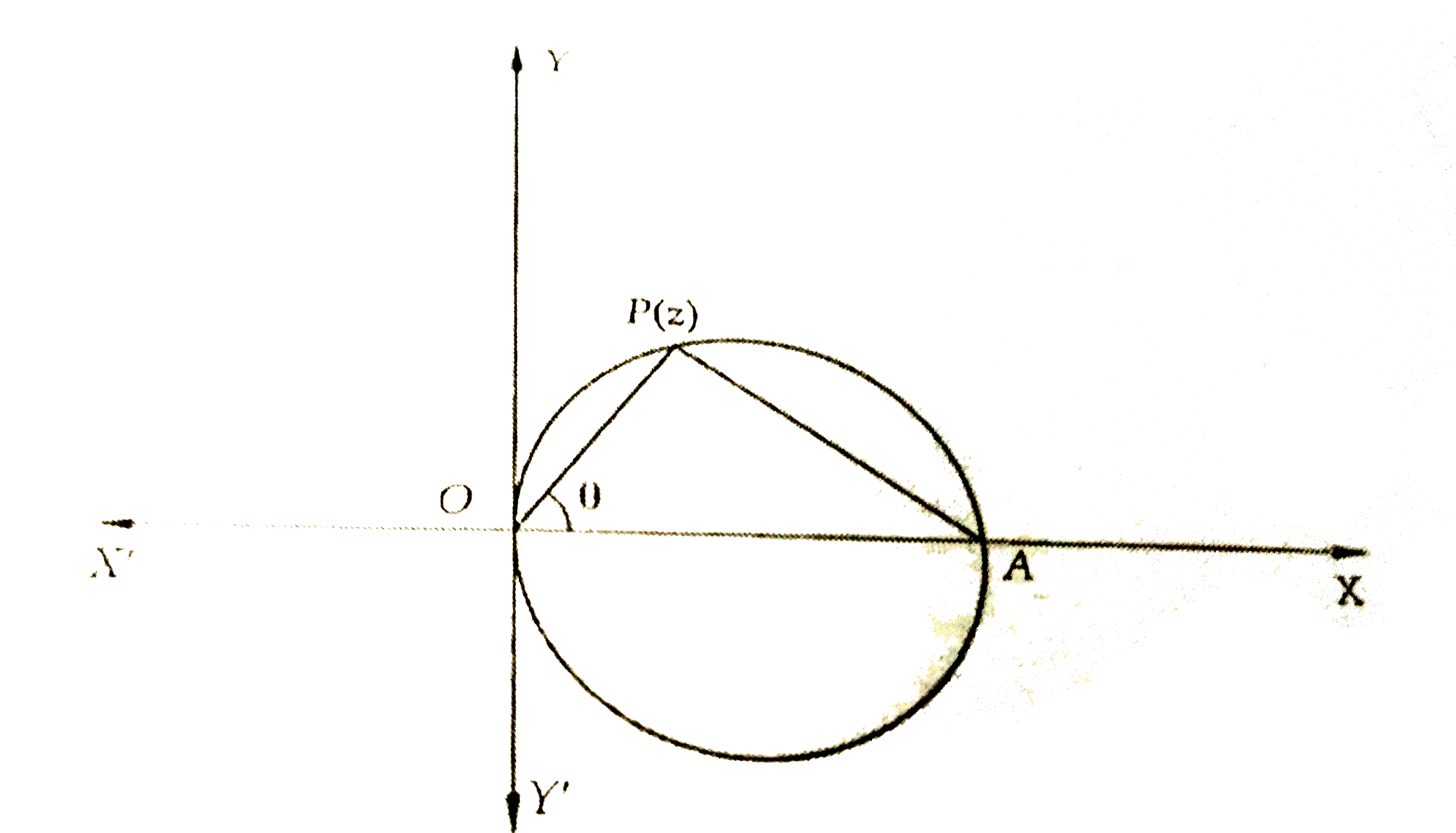If |z−1|=1 and arg(z)=θ, where z≠0 and θ is acute, then (1−2z) is equal to
A
tanθ
B
Itanθ
C
tanθ2
D
Itanθ2
Video Solution
Text Solution
The correct Answer is:B
We have,
|z−1|=1
⇒|z−1(1+0i)|=1
⇒ z lies on the circle with center at (1,0) and radius 1.

It is given that θ is acute and P(z) is a point on the circle |z−1|=1 such that arg (z) =θ, i.e. ∠AOP=θ
Now, anl≥OPA=π2
⇒(2−z)=PAPO(0−z)eiπ/2
⇒z−2z=itanθ[∴tanθ=PAPO)]
⇒z−2z=itanθ
|
Topper's Solved these Questions
- COMPLEX NUMBERS BOOK - OBJECTIVE RD SHARMACHAPTER - COMPLEX NUMBERS EXERCISE - Section II - Assertion Reason Type
15 Videos
- COMPLEX NUMBERS BOOK - OBJECTIVE RD SHARMACHAPTER - COMPLEX NUMBERS EXERCISE - Exercise
131 Videos
- COMPLEX NUMBERS BOOK - OBJECTIVE RD SHARMACHAPTER - COMPLEX NUMBERS EXERCISE - Chapter Test
59 Videos
- CIRCLESBOOK - OBJECTIVE RD SHARMACHAPTER - CIRCLESEXERCISE - Chapter Test
55 Videos
- CONTINUITY AND DIFFERENTIABILITYBOOK - OBJECTIVE RD SHARMACHAPTER - CONTINUITY AND DIFFERENTIABILITYEXERCISE - Exercise
86 Videos
Similar Questions
Knowledge Check
If |z−i|=1 and arg (z) =θ where 0<θ<π2, then cotθ−2z equals
A2iB−iCiD1+iIf |z−1|=1, then arg (z) is equal to
A12arg(z)B13arg(z+1)C12arg(z−1)DNone of theseIf arg(z)=θ, arg(¯z) is equal to
Aθ−πBπ−θCθD−θ
If ∣∣∣z1z2∣∣∣=1 and arg(z1z2)=0 , then
View SolutionIf ∣∣z2+1∣∣=|z| where arg(z)>0&argz∈[kπ,mπ], then 1k+2m is equal to
View SolutionIf z1andz2 are two nonzero complex numbers and θ is a real number, then 1|z1|2+|z2|2[|(cosθ)z1−(sinθ)z2|2+|(sinθ)z1+(cosθ)z2|2] is equal to ________
View SolutionIf arg(z)=θ, arg(¯z) is equal to
View SolutionIf |z1|=|z2| and arg (z1)+arg(z2)=0, then
View Solution
